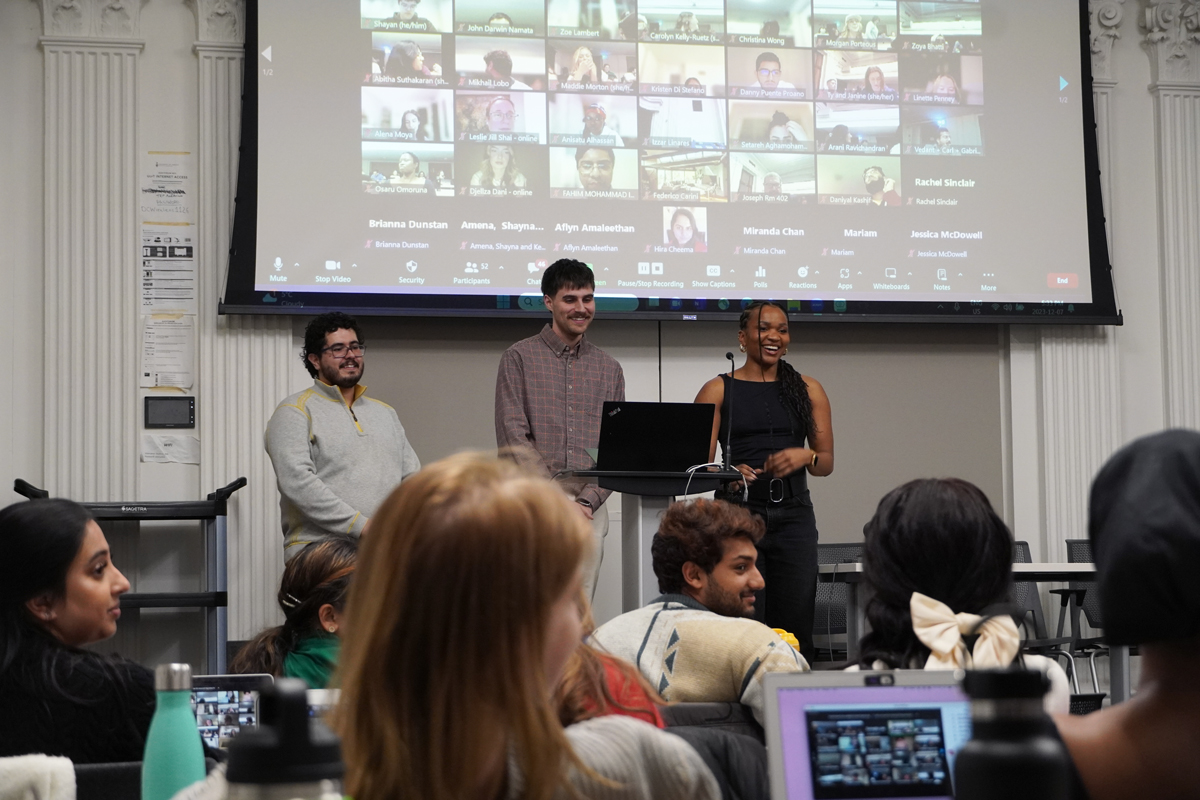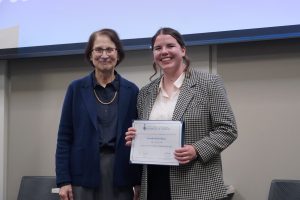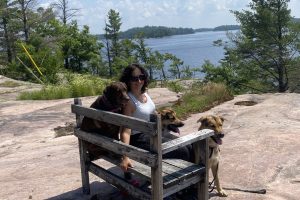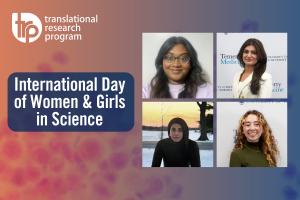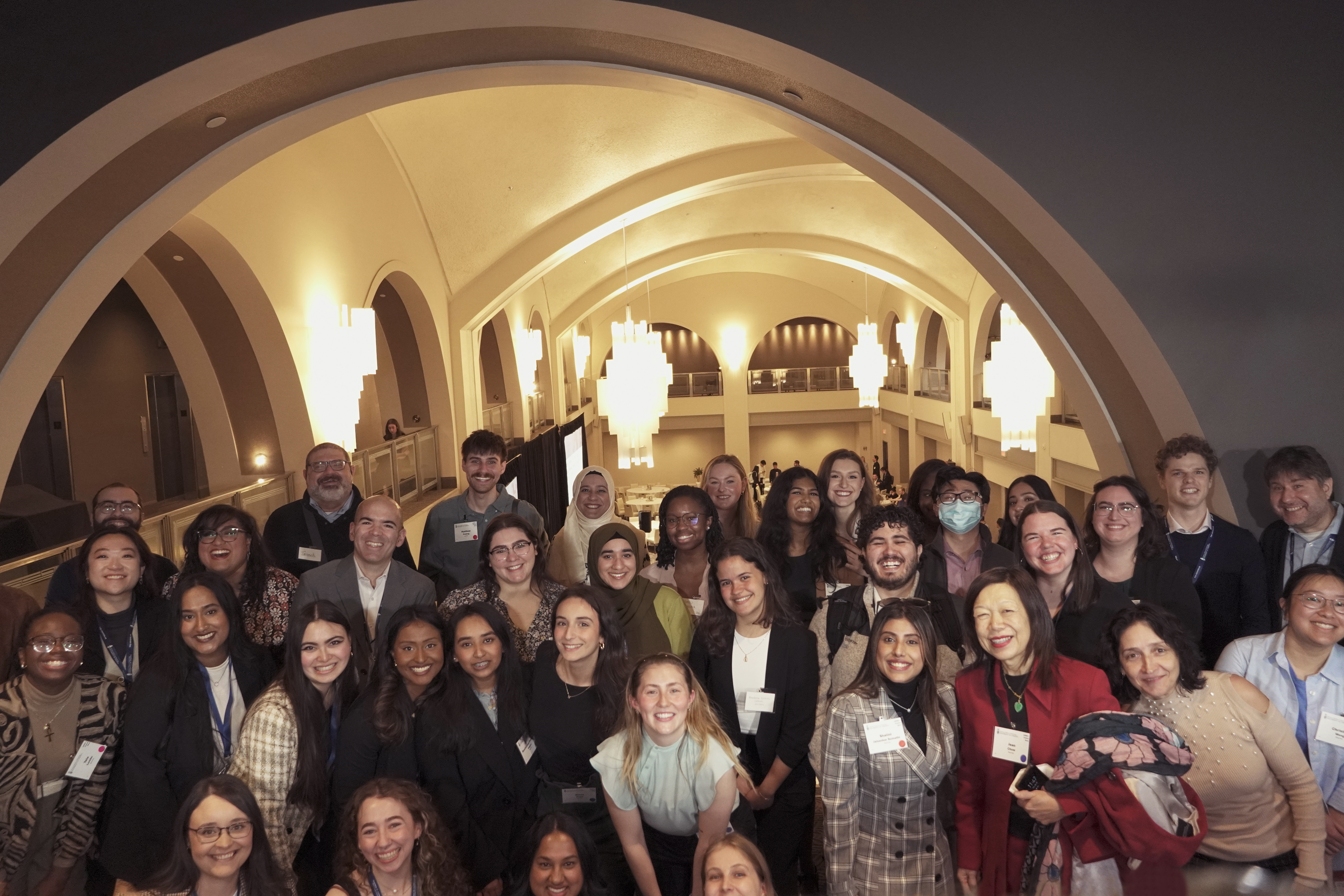
Careers from TRP - Evan Foster
Evan Foster, a University of Toronto Translational Research Program (TRP) alum, had been working as a Research Assistant at the Toronto Rehab Institute’s Hull-Ellis Concussion and Research Clinic since 2020 when he decided that, if he wanted to get back into school, now was the time.
By Radhika Prabhune
Evan Foster, a University of Toronto Translational Research Program (TRP) alum, had been working as a Research Assistant at the Toronto Rehab Institute’s Hull-Ellis Concussion and Research Clinic since 2020 when he decided that, if he wanted to get back into school, now was the time. However, with an interest in problem-solving and a strong desire to make an impact in the health sciences field, choosing where to apply his interests was a difficult decision. The eventual choice of TRP would change his way of thinking forever.
Foster was introduced to the idea of translational research by his colleagues at Toronto Rehab – the idea of a transition from theory to practice, and research involving collaboration between experts from different fields to address a problem. These two definitions, when combined, are the closest to the TRP’s definition – but they miss one crucial component.
The patient.
Rehab really lends itself to translation because it is very much focused on quality of life – it’s all about patient needs
The TRP focuses on involving the patient in every step of the research study – from identifying the needs, developing the intervention, and testing it. The program recognizes that, though subject matter experts are necessary to solve issues in healthcare, the patient is just as much of an expert when it comes to their own lived experience.
When learning about the TRP, Foster recognized how his current position has already played a role in this type of research. “Rehab really lends itself to translation because it is very much focused on quality of life – it’s all about patient needs,” he said. From his perspective, this was an ideal next step for Foster.
While working through case studies and projects in the TRP, Foster learned the different skills necessary in translation, such as how to perform efficient outreach and use the Toronto Translational Framework to design projects. He was able to gain these skills with the support and guidance of his professors, but one question remained: How would we use these skills to become translators and innovators, independently?
It wasn’t until his third case study in the TRP Foundations course that Foster was able to put these new skills into practice when he was given the opportunity to work alongside a start-up company. “We were able to actually meet somebody who didn’t have the same skill set [in translational research], but who had an idea and was trying to move their idea forward – and we came in almost as consultants to help them,” he explained. By helping the entrepreneurs work through the barriers they were facing, Foster became aware of his own interests in innovation.
Now that we’re outside of an academic environment and we’re trying to create this, you need to be so tight in terms of your pitch, of what you’re doing, and despite the fact that we’ve worked on it for a year, that’s been a challenge.
By the second year of the program, Foster and his group, all with their own diverse skill sets, came together to start their Capstone project. All driven by a shared interest in healthcare innovation, the group decided to address the lack of connection between innovators, funders, academia/hospitals, and industry. There was nowhere that all these people would be in one place, so Foster and his group worked towards creating that space in a new website designed as a digital campus for targeted networking.
Post-graduation, Foster says the group continues to commit a few hours a week to keep their Capstone project moving forward. With pitch competitions and incubator research, Foster noted the new difficulties, “Now that we’re outside of an academic environment and we’re trying to create this, you need to be so tight in terms of your pitch, of what you’re doing, and despite the fact that we’ve worked on it for a year, that’s been a challenge.”
After leaving the TRP, Foster continues to work at the Concussion Clinic, where patients are offered the opportunity to join advisory committees and participate in research projects. In his new role as Research Coordinator, he has designed a study to understand what the patient’s priorities are for research and has already begun interviewing patients, family members, and loved ones for their perspectives. “A mini-Capstone project,” as Foster described it. “It’s about trying to keep the patient mindset all the way along, and not allowing myself, as the so-called expert in the field or the researcher to bias anything. Trying to make sure the project is informed by the people we’re trying to help.”
When discussing his future ideas and pursuits, Foster has reflected on his past two years and his “why” or his reason for continuing in the healthcare field. “My interest is not in research for the sake of research. It’s research for the sake of understanding how we can address true patient needs.” For now, he will be taking what he learned from the TRP and his Capstone project about combining healthcare with industry and applying it to his work at Toronto Rehab. Through partnerships and new technology, Foster hopes to help the clinic branch out further to help more people – and make the impact he has always wanted to make.
Follow Evan on Twitter @ejfosterr
Like this story?
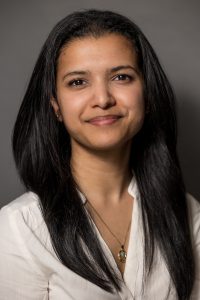
Radhika Prabhune
Explore
- Room 120
- Old Administration Building
- University of Toronto
- 263 McCaul, Toronto, ON
- Canada, M5T 1W7
Copyright © 2024 — MHSc in Translational Research. All Rights Reserved
